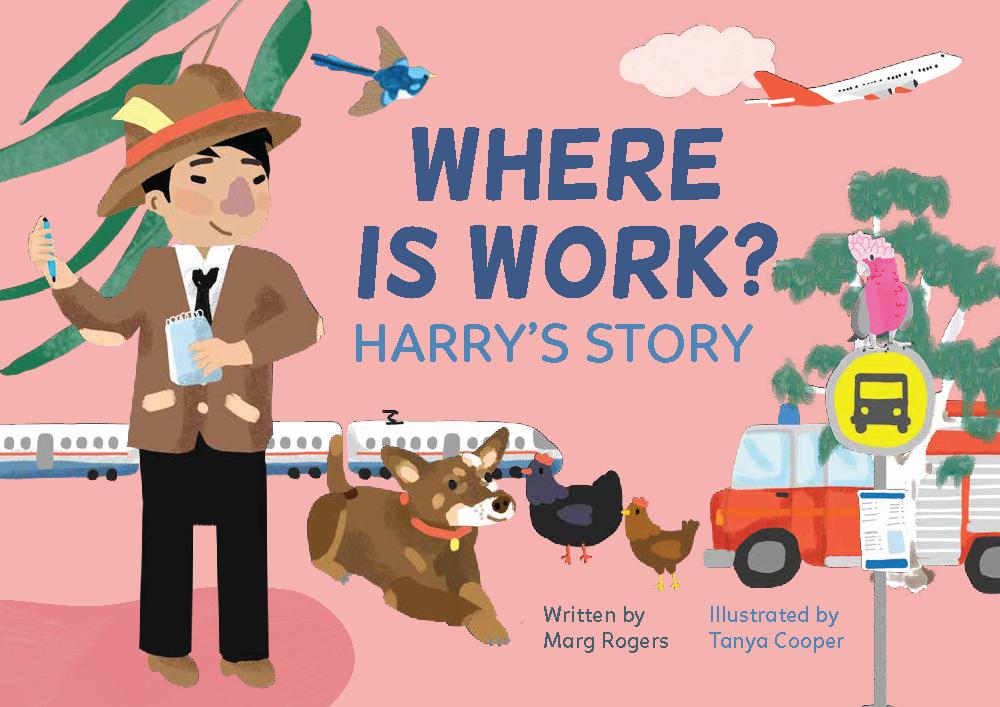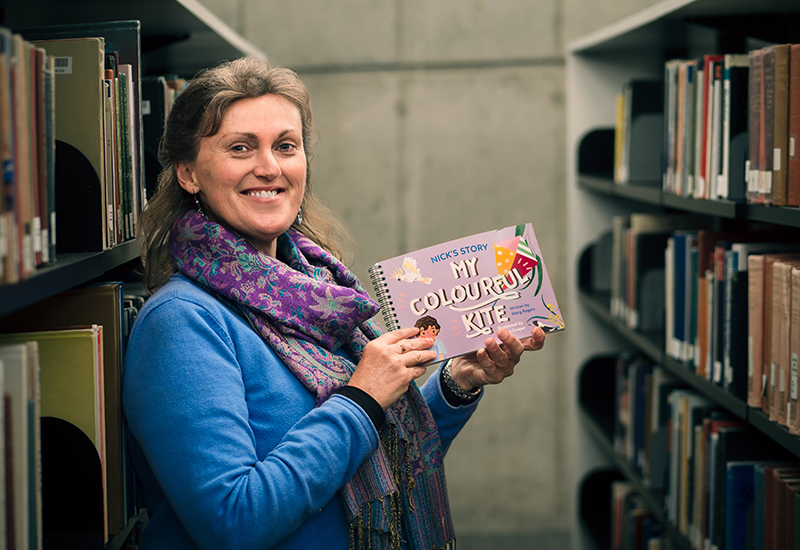Through beautiful illustrations and engaging narratives for young children, the new e-books by UNE early education researcher Dr Marg Rogers explore the thoughts, emotions and behaviours young children can experience when a parent works away for various reasons. This could be for mining, oil and gas jobs, transport, emergency services, health or tourism work, or parents who are very busy at certain times of the year, like harvest time on a farm.
“The books are important because they give children's experience in families with a parent who works away a voice,” says author Dr Rogers. “They allow children to see their own families reflected in the stories featured in these books.”
The books support parents and educators to start conversations about what children are experiencing when their parent works away.
The stories are the first of their kind in Australia, told from the child’s perspective, but designed to be read with parents, friends, family, carers and educators.
“The books support parents and educators to start conversations about what children are experiencing when their parent works away. These can be social, emotional, physical and social responses to their parent working away, plus they experience the responses of other family members,” she says.
As well as helping children understand their family situation, the e-books offer ways to help them cope, build resilience and stay connected to the parent who is away. They explore the interests and strengths of children, and provide adults with ideas to keep their relationship fresh and strong despite being separated by distance.
Listening to families
The idea for the resources sparked from Dr Rogers’ PhD project, where she interviewed parents, and importantly, researched with children in military families who experienced their parent being away on training and deployment. She found the impacts on children could be significant, and families struggled to explain their situation and help children cope, with little in the way of Australian-based resources to assist.
That initial research led to further research into the differences and similarities to children whose parents work in the mining industries as FIFO and DIDO workers. The stories in the e-books are based on those heard from children through the research projects, or during Dr Roger’s teaching experience. They’ve also been guided by members of the Research Team of the Early Childhood Defence Program project, who helped edit the books in line with their experiences in and with defence families, and other families.

Image: Work means different things to different families. 'Where is Work? Harry's Story' is one of three e-books to be released this month.
The latest e-books available include beautiful illustrations featuring Australian flora and fauna by Armidale artist Tanya Cooper. They are also available as audio read-along versions and come with downloadable, hands-on educational activities including puzzles, puppets, matching games, card games, board games, sight words, sequencing and storytelling activities. Video read-along versions will be released in spring.
Previous e-books released and others in the pipeline explore military deployment and some specific related health issues sometimes experienced, including PTS (also known as PTSD), physical injuries and other medical and mental health conditions. Interactive versions of these books are also available, funded by the Associate of Graduates in Early Childhood Studies.
A community approach
Dr Rogers says it’s important the resources are not just used by families, but in early childhood and primary school settings and the broader community.
“I hope parents, educators, and family and social workers can use the books and accompanying educational resources to build a greater understanding and empathy for those families who experience parents working away. This will improve our ability to support these children and families at such times.
“The resources aim to encourage children to see that they are not alone and that many other children experience these challenges too. I hope this will empower them to share their experiences with peers, educators, family and social workers.”
I hope parents, educators, and family and social workers can use the books and accompanying educational resources to build a greater understanding and empathy for those families who experience parents working away.
Dr Rogers and her team are still assessing and seeking feedback on the resources, including from families in other situations that might not be addressed in the e-books.
“We are hoping to get more feedback from parents, educators and families or social workers to help us improve the resources and to gather evidence to see if more, or different, resources are needed,” Dr Rogers says.
“These might be important for families involved in emerging industries, such as renewables that may mean more families will be working away in remote areas to build and maintain wind turbines, solar farms and tidal power stations.
“There may also be an increase in the amount of critical, or 'green' metals that are required to build electric vehicles, turbines and solar panels. These changes will impact families and their young children.”
The e-books released this June are:
- My Colourful Kite: Nick’s Story
- Where is Work? Harry’s Story
- What Do You Do When You Miss Your Parents? Rachael’s Story
They have been made freely available through generous funding grants from The Ian Potter Foundation and the University of New England.
The e-books and resources can be found on the Early Childhood Defence Programs website.


